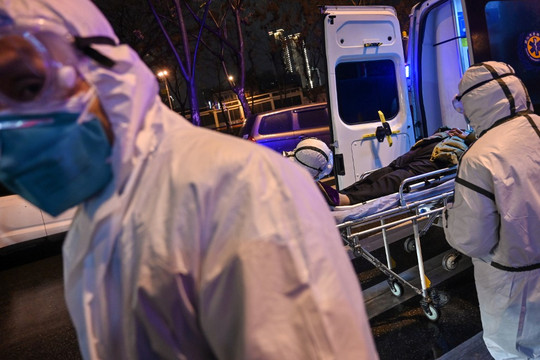Reporting on the coronavirus has been hampered by controls implemented by the local and national authorities. Both media reporting and attempts by experts to highlight the potential crisis at its onset in early January have allegedly been censored. RFA reported that when unusual pneumonia cases were discovered in Wuhan on January 1, eight doctors who shared information on the cases were targeted by the authorities for allegedly ‘spreading rumours’. Police are said to be investigating the doctors for a number of alleged illegal acts including fabrication and disruption to social order.
On January 14, the Hong Kong government sent a number of journalists to Wuhan, the epicentre of the coronavirus, to investigate occurrences surrounding the virus. The BBC reported that while some journalists were allowed into Wuhan hospital, police detained several others and confiscated travel documents, as well as press passes. Television Broadcasts Limited (TVB), a Hong Kong broadcasting company said one of their journalists was “taken to the police room in the hospital for questioning, and asked to delete the materials shot in the hospital.”
In another incident, a local reporter was censured over posts made on Chinese social media platform Weibo on January 24. Reporter Zhang Ouya of the Hubei Times newspaper had called in his Weibo post for a change of senior leadership in the Wuhan government, but was later asked to delete the post by the Hubei Times. The newspaper issued an apology to the Wuhan Municipal Party Committee following the posts removal.
On January 26, the Hubei Provincial Government, which oversees the city of Wuhan, held a press conference on the coronavirus with contradictory information given by a number of leaders. The governor of Hubei Province, Wang Xiaodong, initially stated that the province produced 10.8 billion masks annually, but later reduced this to figure to 1.08 million during the same press conference. A number of other contradictory statements were also made with Wang saying that "protective equipment such as medical clothing and masks are scarce", while mayor of Wuhan, Zhou Xianwang, said the shortage of protective equipment "has been solved."
The IFJ said: “In times of emergency, the provision of accurate and timely information to media remains critical. We urge the Chinese government to ensure clear information and updates are provided to both the public and journalists from the medical experts working in Wuhan. The blocking of information by any government or entity effectively denies the public’s right to know. The IFJ stands in solidarity with journalists around the world and defends their right to provide factual reporting on the coronavirus”.

